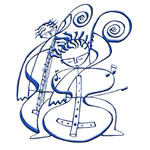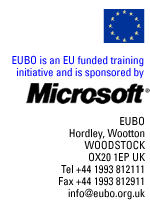
 |
Commissioner Jan Figel' addressed an audience of invited guests at a concert given by the EUBO on 7 November 2005 at Bibliotheque Solvay in Brussels
.
Distinguished audience, members of the European Commission, European Parliament, European institutions, dear friends of culture, ladies and gentlemen. It’s good that we can meet here tonight in this wonderful space, premises, to celebrate the 20th anniversary, which is not so high a number but very important in the emotion of European culture and cooperation, and the spirit of European cooperation in the European community forum.
I
want to congratulate the wonderful European Union Baroque Orchestra, it
has presented a lot of cultural hard work in many countries, more than
fifty. It deserves our attention and support, especially because…it serves
as a valuable pool of talent and promoter of understanding and communication
between people of different cultures, promotes…common cultural heritage
which is very important in the 21st century, a century which hopefully…will
be different from the previous.
I am sure that culture can answer many questions over time. We need to invest in culture. Jacques Delors was right, he spoke frequently, nobody falls in love with the single market. And I would like to add, culture can and should give us in Europe all we need, a spirit of togetherness, a spirit of sharing, responsibility. In time of baroque, when politicians or leaders of the time have been quarrelling or waging wars, the people who developed that part of culture…which united composers, artists and audiences.
I believe that this evening can be a good occasion to get closer in touch with baroque music, be inspired, to create a closer community. And I want to congratulate specially because after 20 years we see a new generation or generations coming into the state of cooperation, with some specific results. I think of the soloist and director here Rachel Podger who, 15 years ago, was a student and one of the young players and now she leads the Orchestra. This is what we need, to support talents, to multiply, to pursue knowledge and excellence, and to spread the spirit of togetherness.
Concluding,
I would like to wish on behalf of the European Commission which supports
this Baroque Orchestra, many happy returns of this day and days, not only
for successful performances but strong spirit of European identity, European
community of values where culture should play it’s important role. …A
good, inspiring, joyful evening, and also good many successful years together.
Thank you.
James Elles MEP added his words of support for EUBO at the same occasion.
Before we start with the music, I would like to add a few comments myself. In 1985, which you mentioned Ján, this was the European Music Year, which was where the European Union Baroque Orchestra came from, and where I as a parliamentarian was helpful I think in setting up the permanent structure with which the Baroque Orchestra’s had 20 years of success and hundreds of baroque musicians now play in orchestras across the world.
Normally the talk is given by our Chairman of the Trustees, that is Francis Robinson. He, I would like to recognise to you, is still the same Chairman, who is sitting here in the front row, who started off when the Orchestra was first formed. Paul James, the General Administrator of the Orchestra, is still the same person, still the same energetic individual with Emma Wilkinson, who is able to give you such talent as you will be shortly hearing this evening.
An original trustee too is also here in the audience, Gijs de Vries, in a different type of role, coordinator of European sanctions on terrorism. But he was also somebody who was very much involved with the Orchestra when he was a European parliamentarian.
And
the last person I would like to recognise is Joy Bryer, here as the Secretary
General of the European Union Youth Orchestra. I’d like to say thank you
very much Joy for joining us this evening, because here you then have
the two orchestras of the European Union, which are shaped with members
states’ representatives; with the honorary patrons prime ministers of
the European Union Youth Orchestra, and the ministers of culture being
the European Union Baroque Orchestra….
So now I’m here it’s true the only time I’ve ever addressed an audience
of the Baroque Orchestra is in 1989, when the Baroque Orchestra played
in Moscow, and there with us, was Commissioner for Culture Jean Dondelinger,
and we were being financed by Panasonic, a Japanese company at that time.
And tonight things are a little different but still plus ça change, plus
ça même chose.
But just one thing to end with, this wonderful talent with musicians doesn’t happen by chance, and indeed transitionally during next year there will be significant difficulties financially for the Orchestras, because the funding, just as it so happens from the Commission budget, will be halved in relation to 7 years ago for the Baroque Orchestra. The Youth Orchestra, I think, will be suffering something similar. So if the programme is reduced it’s not because the Orchestras wish it that way, but because the funding in that way is made difficult.
But I think that you’ll all agree whether it’s with the Parliament, whether it’s with the Commission, or whether indeed somewhat reluctantly with the Council to approve European funding for culture, let us hope that it the longer term that when we come to the new financial perspectives. And I mention this because Vasco Graça Moura is with us tonight, as the Cultural Rapporteur, looking for more money being supported by many of us, and we hope that the multi-annual programmes which you espouse will come to be so as to make life easier for the Orchestras, that we will then be able to listen to this Orchestra, the Youth Orchestra, and others for a long time in the future. So without any further ado let me ask then the Orchestra to come on stage and we can now begin the concert.